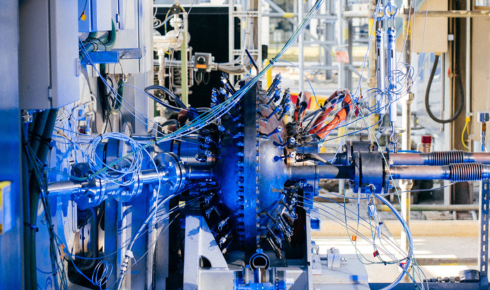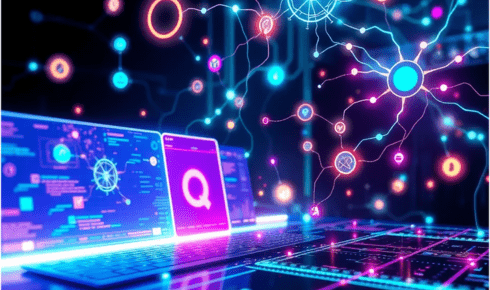Biotechnology, the application of biological principles and techniques to create products and technologies that improve human lives, has witnessed remarkable advancements in recent years. From revolutionizing healthcare to addressing environmental challenges, biotechnology is at the forefront of scientific innovation. In this article, we will explore the exciting world of biotechnology, its applications, and the profound ways it is changing lives and medicine.
Understanding Biotechnology
Biotechnology encompasses a wide range of techniques and processes that leverage living organisms, or their parts, to create products and solutions. This interdisciplinary field combines biology, chemistry, genetics, and engineering to address real-world problems. Key aspects of biotechnology include:
Genetic Engineering: Manipulating an organism’s genetic material to achieve desired characteristics or outcomes. This includes gene editing techniques like CRISPR-Cas9.
Fermentation: Using microorganisms like bacteria, yeast, and fungi to produce valuable substances, such as antibiotics, biofuels, and enzymes.
Bioprocessing: Utilizing living cells to manufacture products like vaccines, pharmaceuticals, and enzymes.
Biotechnology in Agriculture: Improving Crop Yield and Sustainability
One of the significant impacts of biotechnology is in agriculture. Biotech crops, often referred to as genetically modified organisms (GMOs), have been developed to enhance crop resistance to pests, diseases, and environmental stress. This results in increased crop yields and reduced reliance on chemical pesticides.
Biotechnology has also given rise to precision agriculture, enabling farmers to make data-driven decisions on planting, irrigation, and fertilization. By analyzing data from various sources, including sensors and satellite imagery, farmers can optimize resource use, reduce waste, and promote sustainable agriculture.
Biotechnology in Healthcare: Advancing Medicine and Treatment
The field of biotechnology has revolutionized healthcare in numerous ways:
- Drug Development: Biotechnology plays a crucial role in drug discovery and development. This includes the creation of biopharmaceuticals, such as monoclonal antibodies, insulin, and vaccines. These drugs are produced using living cells or microorganisms and have proven highly effective in treating various medical conditions.
- Gene Therapy: Biotechnology enables gene therapy, a promising area of medicine focused on correcting genetic disorders by replacing or repairing malfunctioning genes. Recent advancements in gene editing, like CRISPR-Cas9, have opened new possibilities for treating genetic diseases.
- Personalized Medicine: Biotechnology is driving the growth of personalized medicine. By analyzing an individual’s genetic makeup, doctors can tailor treatment plans to match a patient’s unique genetic profile, increasing the effectiveness of treatments and minimizing side effects.
- Diagnostics: Biotechnology has led to the development of advanced diagnostic tools, including DNA sequencing, which allows for the rapid and precise identification of diseases and conditions.
Biotechnology and Environmental Sustainability
Biotechnology is playing a pivotal role in addressing environmental challenges and promoting sustainability:
- Biofuels: Biotechnology has led to the development of biofuels, such as biodiesel and cellulosic ethanol, which offer renewable and more environmentally friendly alternatives to traditional fossil fuels.
- Bioremediation: Microorganisms are being harnessed to clean up environmental pollution, such as oil spills and toxic waste sites, in a process known as bioremediation.
- Waste Reduction: Biotechnology is helping to reduce waste through the development of biodegradable plastics and environmentally friendly packaging materials.
- Conservation: Biotechnology supports conservation efforts by preserving and protecting endangered species through techniques like artificial insemination and cloning.
Challenges and Ethical Considerations
While biotechnology offers immense promise, it also presents challenges and ethical considerations:
- Ethical Concerns: The manipulation of genes and the creation of genetically modified organisms raise ethical questions about the potential consequences and unintended impacts on ecosystems.
- Regulation: Developing appropriate regulations to ensure the responsible use of biotechnology is an ongoing challenge. Striking the right balance between innovation and safety is essential.
- Privacy: Advances in genetic testing and personalized medicine also raise concerns about patient privacy and data security.
- Access and Equity: Ensuring that biotechnological advancements are accessible to all, regardless of their socioeconomic status, is a critical concern.
The Future of Biotechnology
The future of biotechnology is marked by continued innovation and growth. Here are some key trends and developments to watch for:
- CRISPR and Gene Editing: The refinement of gene editing techniques, particularly CRISPR-Cas9, holds great promise for treating genetic diseases and advancing gene therapy.
- Synthetic Biology: The field of synthetic biology involves designing and building new biological parts, devices, and systems for specific purposes. It has the potential to create novel bioproducts and revolutionize multiple industries.
- Precision Medicine: As genetic sequencing becomes more accessible and affordable, the adoption of precision medicine is expected to increase, allowing for more tailored and effective treatments.
- Biopharmaceuticals: The development of new biopharmaceuticals and biologics for treating a wide range of diseases and conditions will continue to expand.
- Biotechnology in Agriculture: The development of biotech crops that are more resilient to environmental stress and pests will contribute to global food security.
- Green Biotechnology: Innovations in green biotechnology will lead to the development of more sustainable and environmentally friendly products, including biodegradable plastics and bio-based materials.
In conclusion, biotechnology is a dynamic field that continues to push the boundaries of scientific discovery and innovation. Its applications span multiple sectors, including agriculture, healthcare, and environmental sustainability. While challenges and ethical considerations must be addressed, the potential benefits of biotechnology are vast. As the field advances, it will play a pivotal role in changing lives, improving medicine, and contributing to a more sustainable and healthier world. The future of biotechnology is bright, promising solutions to some of the most pressing issues facing humanity.















+ There are no comments
Add yours